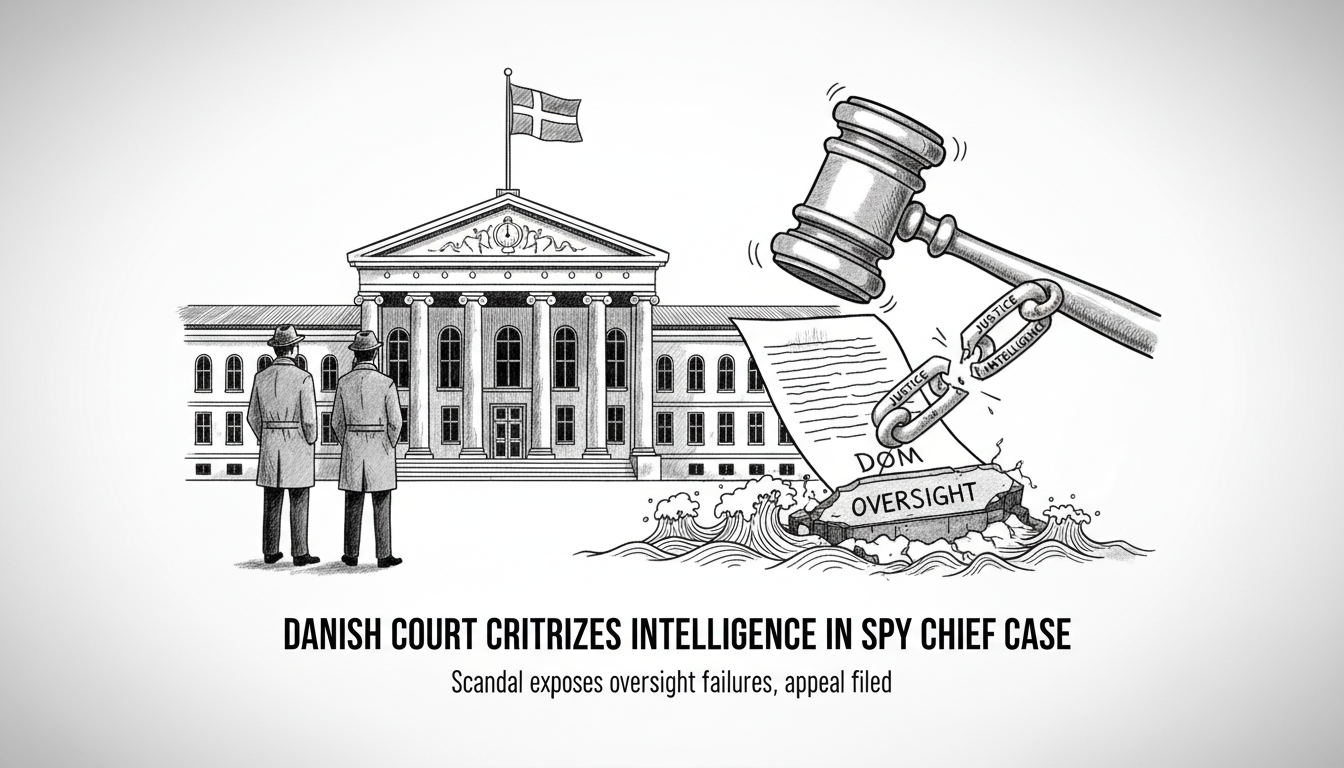A Danish court delivered a sharp rebuke to the country's justice system this week. The Lyngby Court ruled that police intelligence chief Finn Borch Andersen broke the law. He made false statements about former intelligence head Lars Findsen to political leaders. The court ordered compensation of 20,000 kroner for Findsen. This case exposes serious problems within Denmark's intelligence community.
The controversy centers on a January 2022 briefing. Borch Andersen informed multiple party leaders about Findsen's personal life. The court found these statements were untrue and illegal. They violated basic legal principles and damaged Findsen's reputation. The ruling represents a significant embarrassment for Denmark's security apparatus.
Why does this matter for Denmark's democracy? Intelligence services operate with special powers in any country. When they misuse those powers, it threatens democratic oversight. The court specifically criticized the Justice Ministry, PET intelligence service, and prosecutors. This suggests systemic issues rather than isolated mistakes.
The case continues despite the initial ruling. Prosecutors have already appealed to the Eastern High Court. This means the legal battle over intelligence oversight will continue. Such appeals are common in high-profile Danish cases involving government agencies.
Denmark has faced multiple intelligence scandals in recent years. The Findsen case follows other controversies about surveillance and data collection. These repeated incidents raise questions about proper oversight of intelligence activities. How can democratic societies balance security needs with individual rights?
The compensation amount of 20,000 kroner seems modest for such serious violations. Danish courts typically award smaller damages than other countries. The symbolic importance outweighs the financial compensation in this case. The ruling establishes legal boundaries for intelligence officials' conduct.
International observers should note this development carefully. Denmark is often seen as having strong institutional integrity. Cases like this reveal that even well-regarded democracies face challenges monitoring their security services. The appeal process will test whether the court's criticism leads to meaningful reform.
What happens next? The high court appeal could take months to resolve. Meanwhile, the public debate about intelligence oversight continues. This case may prompt parliamentary inquiries or policy changes. The relationship between intelligence services and elected officials needs clearer rules and better enforcement.

